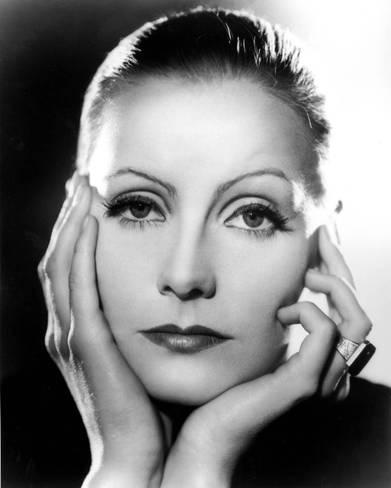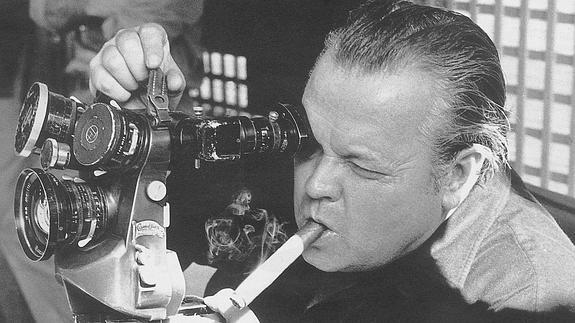Zarah
Dietrich stayed in the States. Goebbels tried to get her back, but is it was no go. She had a glorious career and was a foe of the Third Reich. Although Hollywood had beckoned, Zarah Leander didn’t get on the boat. She too had fame, but it was limited to the continent.

Zarah Leander
Goebbels needed a mundane low-voiced songstress who would play the other woman in films and sing melancholy songs of lost love. He didn’t like Zarah much, but she filled the bill. “Zarah” had been modified from Sara, which was the middle name the Nazis added to legal documents of women of Jewish extraction. That was a prelude of murderous things to come.
The chief ideologue of National Socialism was none other than Alfred ”Rosenberg”. What the hell, if the keeper of the faith had a name that smacked of Judaism, Zarah would have to do.
The Third Reich wouldn’t have been the Third Reich without those sad songs of lost love, elegantly rendered with a hankie within reach. Yes, Germany of the Thirties and Forties needed a a low-voiced woman who’d been around. Goebbels my may not have been convinced, but Hitler was delighted.
The seductress needed a composer for the sad songs and Hugo Balzer was the man. Unfortunately the man preferred the company of men and had fallen from favor. Worse than that, he was behind bars. Zarah snapped her fingers and she had the composer at her side.
Hit records and musical films, as well as films with music were the result. The career was fairy-
tale career in a country with a nightmare regime.
Realists realized that that after Stalingrad and el Alamein in 1943 the end of the regime would be coming after much more slaughter. Zarah, if anything was a realist. She broke her film contract with UFA and headed for home.
Her Swedish compatriots weren’t delighted with Nazi Germany, nor were they delighted with a Swede who had sung and filmed her way into Third-Reich hearts.
When the end came two years later, she was blacklisted for a while in Germany and Austria. However, in 1948 she took up where she had left off, with a little less glory and luster.
Garbo
Greta Garbo seemed to very unapproachable, and indeed she turned into a recluse after her retirement from films. In the early Sixties when I lived at 55 East 54th St., across from the
Monkey Bar, I’d see her now and then swiftly walking along the East Avenues.

Greta Garbo
She had said, “I want to be alone” in Grand Hotel. She had said, “I want to be left alone” in real life.
A myth had been constructed about her and she did her part to augment it. That was a professional necessity. But the myth and the woman were not quite the same thing. In her private life, she disclaimed the myth with those she hobnobbed with.
She was very realistic about contacts at close quarters. She though that the act was good for her complexion. And although she was aloof, she was not aloof in every respect. She is reputed to have told a future lover, who was shilly-shallying, to get to it.
You could say that she was a liberated woman. It seemed that marriage and a family weren’t in the cards, and she avoided tying the knot like poison. John Gilbert tried everything to make her Mrs. Gilbert, but she balked and he chose death to being her spurned lover. And of course there were others who tried to tie her down.
Not everyone is cut out for matrimony.
In Anna Karenina she says, “I face the truth…that one day I shall find myself alone.” And that shred of dialogue was prophetic.
After Two-Faced Woman, which was panned by the critics, which wasn’t really that bad, Garbo retired from the screen. She decided that it was better to leave abruptly at the age of thirty-six, than to fade into playing character roles.
The real Garbo and the film Garbo may have been similar, but she more or less wrote her own life.
Reality Intrudes
Grace Kelly, the cool, graceful blonde, was not quite as cool as her screen image in her real life. She had a dream-career in Hollywood, but she must have known that dreams are what you wake out of, so she chose the real dream of marrying royalty. She promptly shed her coolness, exchanging it for the ambiance of the matron.
And who would have thought that the daughter of the woman who typified grace and elegance on the screen would have a winged-tip tattoo above her posterior?!

Clark Gable
Clark Gable was as handsome as his screen image, but he had one striking flaw, a flaw that was not visible – he wore dentures.
In Gone with the Wind Vivian Leigh detested the kissing scenes, due to his bad breath. At the time, women all over the world were dreaming of being kissed by Clark.
Gable liked to rib his image: To show that the private Gable, in contrast to the screen Gable, was just like everybody else, he’d take out the dentures as a joke. (I can’t help interjecting that in those golden film days, false teeth and toupees were expertly made. I don’t know how many identifiable wigs I’ve seen in present-day films.)
Marlene Dietrich, Garbo’s great European rival, too differed from her screen image. The vamp of vamps was a homebody who liked to cook for her lovers.
Thus reality always seems to intentionally – as well as unintentionally – intrude in the Dreamland of Cinema.
Love Goddesses
One thing that the Love Goddesses seemed to have in common was that love didn’t play much of a role in their private lives. They were desired by every man and were a romantic object for all men. They invariably had a cynical view of amour and were down to earth about it, at least as far as the act was concerned. It mostly amounted to nothing more than an erotic incident.
The virtue of women is a romantic myth and a petit-bourgeois notion. However, Love
Goddesses were beyond the notion, and they created their own kind of virtue and their own myth. The myth entailed being pursued by men worthy of their beauty and desirability – men like Percival of the Holy Grail – the Holy Grail being a sacred chalice, not a Dixie cup to be drunk from and then crumpled up and thrown away. And if not pursued by a Percival, then a Galahad, or at least a Lancelot, but definitely not by your average guy.
After much ado and commotion, the knight knelt at the feet of the Goddess and declared himself. His affections were rewarded by a sacrifice on altar of love in a hazy Nirvana, which was so blurry that specifics were left to the viewer’s imagination.
0In contrast, the Goddesses usually got down to brass tacks off-screen with a mogul or a plain Joe, which sometimes led to the Dixie cup syndrome.
They scoffed at the myth, while doing their best to nurture it – at least as far as their image was concerned.
They aimed at being loved for themselves, which did not mean being loved deliriously, as they were onscreen, but rather in the sense of being taken seriously by a man. That augured being
doomed to failure. We don’t want a God or a Goddess to be one of us.
to be continued…
– Herbert Kuhner










 Users Today : 8
Users Today : 8 Users Yesterday : 51
Users Yesterday : 51 This Month : 2456
This Month : 2456 This Year : 22740
This Year : 22740 Total Users : 180835
Total Users : 180835 Views Today : 8
Views Today : 8 Total views : 1875105
Total views : 1875105 Who's Online : 1
Who's Online : 1










